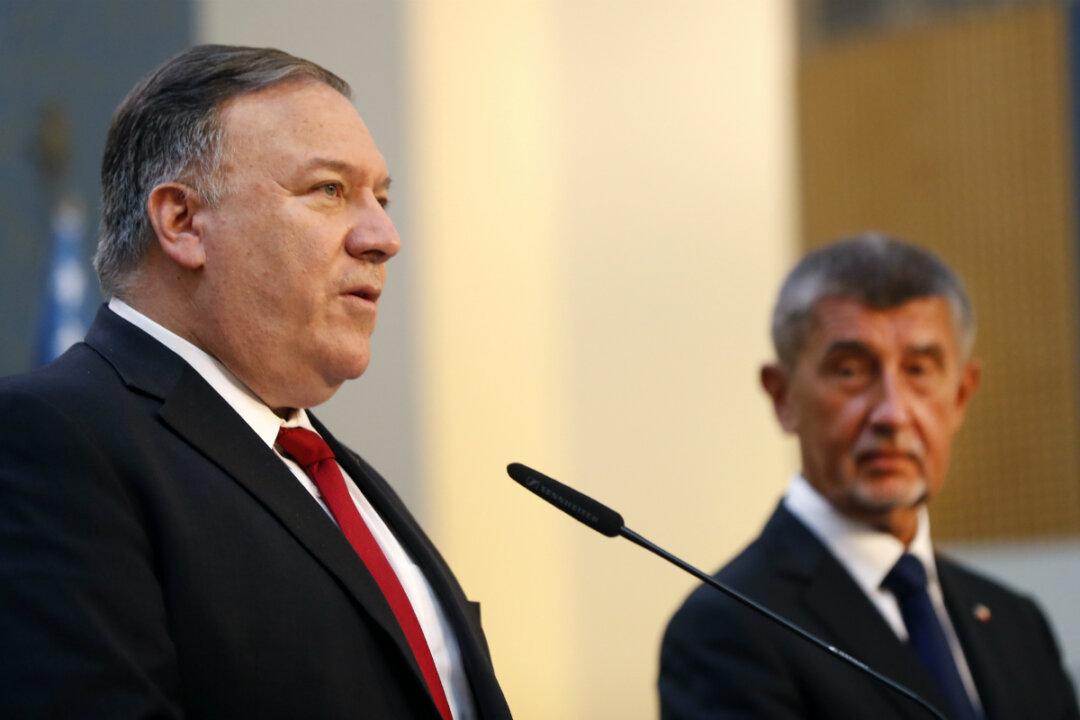U.S. Secretary of State Mike Pompeo in Prague called upon the young democracies of Central and Eastern Europe to embrace their hard-won freedoms as they face threats from Russia and China.
He told lawmakers at the Czech Senate on Wednesday that they are right to resist Chinese attempts to assert economic and political leverage over them for supporting Taiwan, noting several recent examples.





